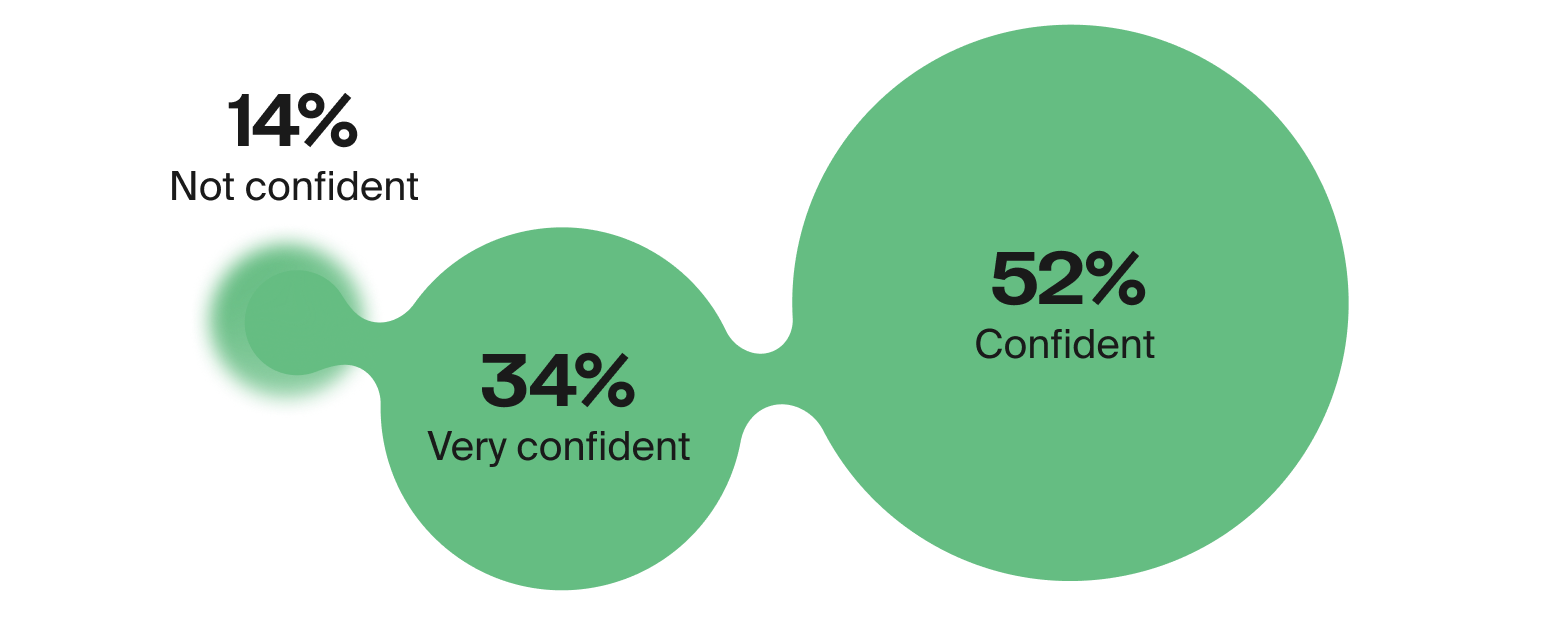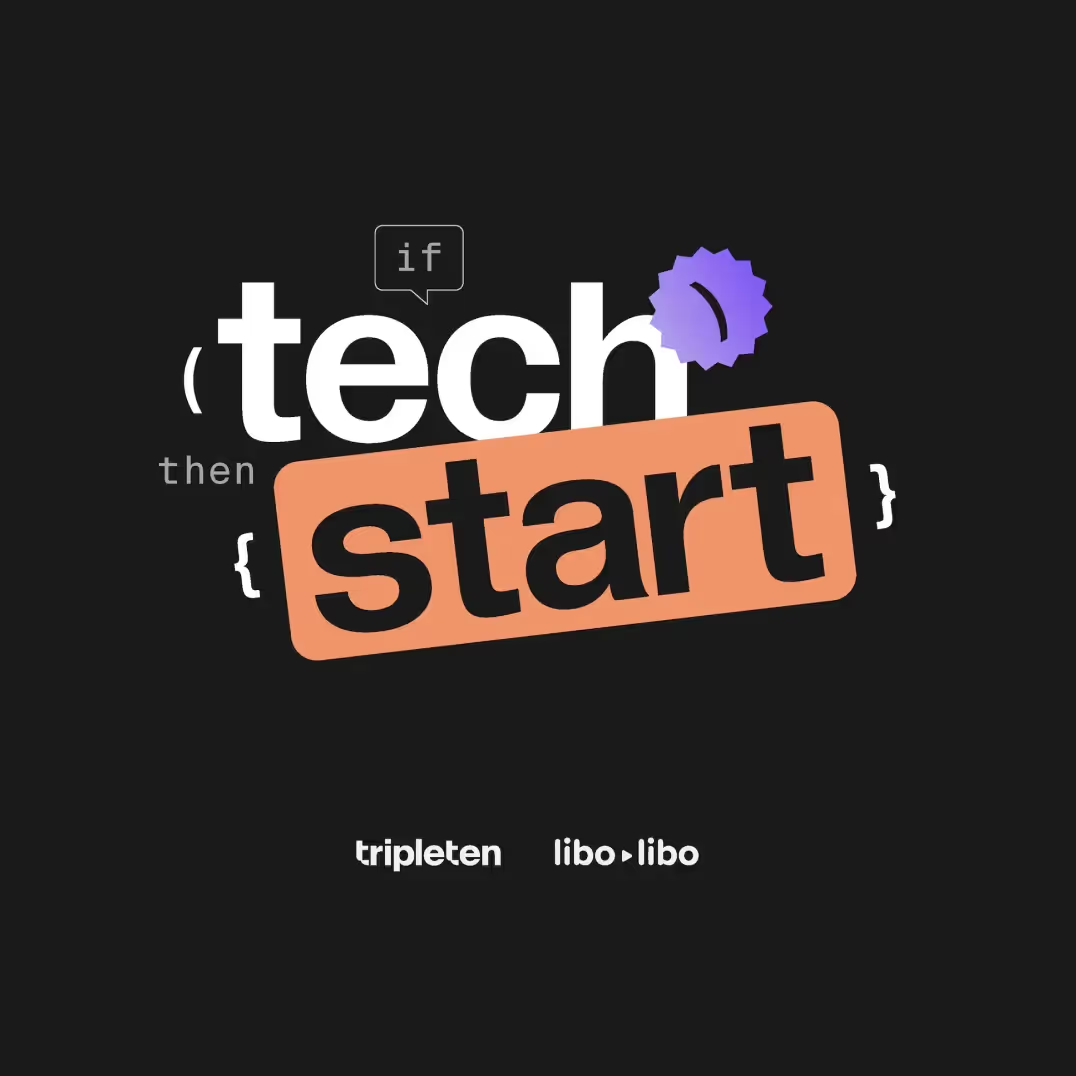So your current career isn’t working out. Maybe you’re burned out, you’re overworked, or your salary just isn’t cutting it anymore. Maybe it’s a combination of all three. Or maybe you’ve got your own perfectly reasonable motivation for making a professional pivot.
But you’re hesitant because one question keeps reappearing in your mind: Can you really land a new career after a coding bootcamp?
Yes. Here’s why.
New career, transferable skills
The first thing to keep in mind is that a job after a coding bootcamp might not actually be the complete career overhaul you initially thought. See, you already have skills that can easily transfer to tech.

Consider Evgeniia Unzhakova. She’d spent nearly a decade as a math teacher until she and her family moved to the United States. She was realistic about her career prospects in the new country. “I decided to choose another career path because I knew I couldn’t teach,” she said.
So what could she do? She started digging and discovered data science. “It was what I was looking for. It’s a science between math and programming,” she said.
Data science, while requiring skills in programming, is a field that also asks specialists to have a keen sense of how to apply various mathematical approaches such as statistics and probability theory.
Evegniia had already mastered this know-how. She’d been teaching mathematics, so all she needed to do was augment her skill set with programming. She did just that, and once she graduated from TripleTen, she was primed for success. In fact, soon after graduating, she landed a new job as a research analyst at the University of North Carolina at Chapel hill.
And she’s not the only teacher who took existing know-how, augmented it with new tech skills, and made the switch. Check out Tiffany Hall in her own words:
It’s not just a previous career that’s relevant, either; you can take your passion and merge it with skills in tech to launch a new, fulfilling career just like Jake McCambley did. In college, he studied psychology, and after graduation, he worked as a wilderness therapist. He’d already been interested in helping people, but this job solidified his passion.
“I have vivid memories of making fires with sticks in the woods and teaching other people how to do that. I’d see kids crying because they’d discovered something about themselves that was so transformative. It was really rewarding. It taught me a lot about who I am today.”
A chance encounter showed him the value of learning coding skills, and after graduating from TripleTen’s Software Engineering Bootcamp with new tech know-how, he knew the path to take. “I wanted to work somewhere related to mental health or related to conservation, somewhere that I felt like was going to be doing good in the world,” he said.
So he found a company connecting people to therapists and reached out to the CEO. “I wrote a cover letter to her just explaining, ‘Hey, I’m passionate about mental health. I’m passionate about building products that help people,’ and she responded, saying, ‘Let’s chat on the phone.’”
That was in April 2022. He’s been with them ever since.
You, too, have transferable skills. Which ones? To get you started, here’s a quick chart based on some of the professionals we see most among our graduates:
Transferable skills for teachers
- Creativity
- Emotional intelligence
- Planning
- Collaboration
Transferable skills for salespeople
- Resilience
- Adaptability
- Goal orientation
- Negotiation
Transferable skills for nurses
- Attention to detail
- Multitasking
- Communication
- People management
Okay, but let’s talk about numbers
So these people landed jobs after a coding bootcamp, and they’ve found new meaning, better salaries — everything that comes with a switch. While neither of them is you (unless you’re Jake or Evgeniia, in which case, hi! Nice to see you again!), we are nonetheless confident that you can follow their paths and, yes, start a new career. We even have the numbers to prove it.
First off, let’s talk about our employment rates, as demonstrated in our Outcomes Report.
.png)
It speaks for itself. Across the board, 87% of our grads land jobs post-bootcamp. But, depending on which program you enroll in, you might have a higher chance of launching a career in tech. Want to snatch another two percentage points of likelihood you land a job? Software engineering might be right for you.
There’s more to it, though. Sure, we’re talking about starting a new career, but the implicit promise is that you’ll continue the career. So simply launching a new career might not be precisely what you want to know about — it might be more honest to talk about launching a career and having it stick.
And we have numbers for this, too, once again from the Outcomes Report.
So once you land a job post-bootcamp, if you’re like the overwhelming majority of TripleTen graduates, you’re going to be there for a while. In nine out of ten cases, you won’t just start a career, you’ll keep it.
What’s behind these stats
Those seem like big claims, but we have the data explaining why we achieve such significant numbers. See, we asked over 1,000 decision makers about what they’re looking for when hiring people for tech roles. Their responses paint a clear picture. They want people with skills — 68% of respondents found hard skills to be crucial in a candidate, and 65% shared that soft skills were likewise paramount.

The least important thing? A degree. Only 24% of respondents indicated that a degree was an important quality for candidates to possess.
Even without the numbers, this makes sense logically. To do a job, you need to have the skills that job requires. While a degree might impart these skills, a bootcamp is entirely focused on teaching you the know-how that will help you land and keep a new job in tech.
Employers know this. And it makes them confident in hiring bootcamp grads — 86% of respondents were either confident or very confident about hiring these applicants.

The confidence is well-founded. Bootcamps focus on giving students the abilities that are proven to get them hired because these institutions are staffed by industry experts who’ve been there and done that. They know what specific languages are most in-demand, and they can help learners become familiar with the programming libraries that are most used across tech.
In addition, the structure of the bootcamp itself prepares students to thrive in a new technical milieu. For example, the bootcamp is set up in sprints. That means that you have new knowledge to master, and a project to deliver within a two- to three-week period, but how and when you work on it is up to you.
This precisely mirrors how deliverables are handled in tech. So when you get your first job, not only do you have the skills, you also have an understanding of how things are accomplished in the industry.
And, okay, just one more example. At TripleTen, you’ll also engage in code review. Seasoned experts will comb through your code line-by-line, explain where you may have made errors, and even give suggestions for further optimization. Guess what? That’s also the precise process you’ll encounter in tech.
All of that might just explain why 79% of survey respondents said they were already hiring non-traditional applicants.

In short, our students, our grads, and all our data indicate that yes, you absolutely can start a new career after a bootcamp.
It’s what we’re here to power, after all.
Hone your job search
Ready to start exploring a transition to tech? Begin specifying your path with our Get-Hired-in-Tech Checklist, which will help you zero in on the skills you have, uncover the ones you’re about to gain, and get ready for success in tech.
.avif)

%20(1).avif)

.avif)










.avif)
.avif)

